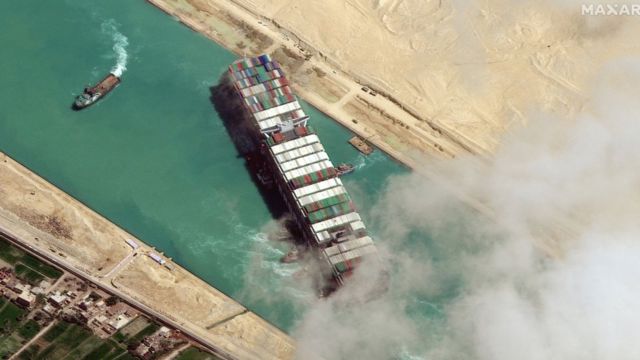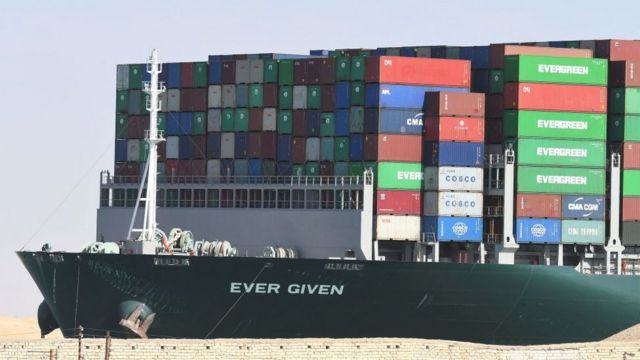Ever Given: Egypt requires $ 1 billion to release ship that blocked Suez Canal
The 400-meter freighter Ever Given was stuck diagonally in the Suez Canal on March 23 for almost a week, causing one of the world's main commercial sea routes to be blocked
It felt like a happy ending.
The success of the maneuver that ended up unlocking the Ever Given freighter from the Suez Canal in late March was celebrated around the world. The story of the blockade of one of the most important routes for international trade had come to an end.
But in reality, the problem is far from being solved.
The reason? Egypt has decided that it will not release the ship until a $ 1 billion (R $ 5.7 billion) fine is paid as compensation for the damage generated during the blocking week. The nearly 400 meter freighter is currently anchored in the so-called Grande Lago Amargo, a salty lake located between the south and north of the Suez Canal.
"We expect a quick deal," he added. "As soon as they agree to the compensation, the ship will be able to move."
Regarding the amount of compensation, Rabie said in early April that "the damages and losses will be calculated and how much the dredging machines consumed".
"The estimate will reach US $ 1 billion or maybe a little more. It is a right that Egypt has," he said.
"The ship will stay here until the investigation is completed and compensation is paid," said Osama Rabie, president of the Suez Canal Authority
This value would be calculated based on the loss of channel usage fees lost after several other vessels diverted the route, going around South Africa. In addition, there is damage to the waterway during drainage, efforts to remove the freighter and costs with equipment and materials.
Shoei Kisen, a Japanese company that owns Ever Given, said he had not yet received any official complaints or legal action for the blockade caused by the vessel, but acknowledged that he was in "negotiations" with the channel's authority.
Why did the ship run aground?
Osama Rabie's statements come in the middle of an investigation that seeks more clues as to how Ever Given ended up stranded on the bank of the channel.
The initial cause was attributed to strong winds, but now researchers must check for technical or human errors, a theory that is defended by the president of the ACS.
Nearly two million barrels of oil and approximately 8% of liquefied natural gas pass through the Suez Canal every day
"The canal was never closed due to bad weather," said Rabie. He also denied that the ship's enormous size was the cause, as "even larger freighters" cross that stretch.
As one of the main economic arteries in the world - where more than 12% of total trade passes through - the stagnation of the Suez Canal brought a series of economic consequences that ended up affecting the pockets of millions of people.
Almost two million barrels of oil and about 8% of liquefied natural gas pass through the Suez Canal every day.
This had a strong impact on the price of these products.
In addition, it is estimated that more than 360 vessels were paralyzed in the canal, among cargo ships with containers and oil tankers.
How much did the Suez Canal blockade cost?
According to Osama Rabie, the stranding of the freighter had a great impact on this commercial route, costing between US $ 14 and US $ 15 million (about R $ 80 million) each blocking day.
The channel is an important source of revenue for Egypt. Even before the pandemic, the trade that passed through it contributed 2% of the country's GDP according to the credit rating agency Moody's.




No comments:
Post a Comment